CBD Öl für Hunde: Erfahrung, Wirkung und Dosierung 🐶
When it comes to the well-being of our beloved four-legged friends, many of us are looking for natural and effective solutions. CBD oil has proven to be a promising option for relieving stress, anxiety and pain in dogs. In this article, we want to share with you everything you need to know about using CBD for your dog - from safe dosing to the experiences of other dog owners. Together, we'll take a closer look at the uses of CBD, how it works on the endocannabinoid system and clarify the question of how safe CBD oil for dogs really is. We also look at the differences between CBD oil and hemp oil and the latest research findings. Finally, we offer you a detailed guide to the correct dosage of CBD oil so that you can provide your faithful companion with the best possible care.
What is CBD oil and how safe is it for dogs?
CBD stands for cannabidiol, a natural ingredient of the hemp plant (cannabis). The two relevant cannabinoids with therapeutic potential are CBD (cannabidiol) and THC (tetrahydrocannabinol). The key difference is that CBD has no psychoactive effect, i.e. it is not intoxicating or addictive. CBD oil for dogs, such as that from CALMA, is safe to use as it has a THC content of 0.0%.
It is IMPORTANT to mention that CBD oil for humans must never be given to dogs, as it may contain traces of THC. However, you are welcome to give your dog's oil a try.
Areas of application of CBD oil for dogs
CBD oils can be used in a variety of ways to help dogs with various ailments. These include stress, anxiety, digestive disorders, inflammation, restlessness, pain, skin conditions, arthritis and much more. Studies such as those conducted by Baylor College of Medicine suggest that CBD can even have a positive effect on arthritis.
Pain relief: One of the most common reasons for using CBD oil in dogs is for potential pain relief. Studies have shown that CBD can have anti-inflammatory and pain-relieving properties, which can be beneficial for dogs with arthritis or other painful conditions.
Anxiety and stress: Dogs can suffer from anxiety and stress just like humans. CBD oil can help to restore the balance of various physiological processes. Since the ECS also regulates mood and emotional balance, CBD can indirectly have a calming and anxiety-relieving effect in dogs. CBD also has anti-inflammatory properties that can help reduce stress and anxiety. Brain inflammation has been linked to symptoms of anxiety and depression, so the anti-inflammatory effects of CBD can indirectly reduce anxiety and stress and help calm your dog.
Epilepsy and seizures: There is growing evidence that CBD oil can reduce seizures and epilepsy in dogs. This has led to growing support from veterinarians who are considering this alternative. One of the possible effects of CBD on ECS is to reduce the neuronal excitation that occurs during epileptic seizures. During a seizure, nerve cells in the brain become overactive and fire electrical signals in an uncontrolled manner. This can lead to uncoordinated movements, muscle twitching and even unconsciousness. Research shows that CBD has the potential to reduce the frequency and severity of seizures in dogs.
Some studies have observed significant improvements in dogs with epilepsy and other epileptic disorders treated with CBD. However, the exact mechanism by which CBD reduces seizures is not fully understood.
Appetite stimulation and nausea: Dogs suffering from loss of appetite or nausea can benefit from CBD oil. It can increase appetite and reduce nausea, which is particularly important if the dog has health problems.
Regulating the immune system: CBD oil is also said to boost and modulate a dog's immune system by interacting with the endocannabinoid system (ECS). By modulating CB2 receptors and inhibiting pro-inflammatory cytokines, CBD is said to help reduce inflammation and keep the immune system in balance.
How CBD works in dogs
The endocannabinoid system (ECS) plays an important role in the dog's nervous system. CBD acts on the ECS receptors that are responsible for pain regulation, stress management and sleep regulation. Although the research results are not yet clear, experience suggests that CBD can have positive effects.
How quickly CBD works in dogs and dosage
The effect of CBD oil on dogs varies depending on the size of the dog, the dosage and type of oil and the purpose of administration. For anxious or stressed dogs, the effects may be visible within 20 to 30 minutes to an hour after administration. If your symptoms are severe or your symptoms are variable, it may take weeks or months for CBD oil to take effect.
Is CBD safe for dogs?
Experience shows that CBD is categorised as safe by the WHO. Side effects are rare, but can include vomiting or diarrhoea. It is advisable to consult a vet before taking it to rule out possible side effects.
There are various aspects that should be considered when buying CBD oil for dogs:
Quality: Make sure that the CBD oil comes from a trustworthy manufacturer and does not contain any contaminants or harmful substances.
Hemp source: Make sure the CBD oil comes from organically grown hemp that is free from pesticides, herbicides and other chemicals
Concentration: Check the CBD concentration of the oil to ensure it is sufficiently potent. The concentration is expressed in milligrams (mg) per millilitre (ml).
THC content: Make sure the CBD oil has a THC content of less than 0.2%. A higher THC content can cause an intoxicating effect in your dog.
Carrier oil: The chosen carrier oil has a big influence on the flavour. Hemp oil is popular, but coconut oil or olive oil can also be used.
Additives: Avoid CBD oils with unnecessary additives such as artificial flavourings or preservatives in order to obtain the purest possible oil.
Our products at CALMA have been specially developed for dogs. We take great care to ensure that they are made from 100% natural ingredients, contain 0.0% THC and are well tolerated by your dog.
CBD oil or hemp oil dog: the differences
Both CBD oil and hemp oil are extracted from the hemp plant, but from different parts.
CBD is obtained from the flowers and leaves, which still contain the cannabinoids, and is an extract that is mixed with a carrier oil. It is used to alleviate various symptoms of illness.
Hemp oil, on the other hand, is obtained from the seeds of the plant and contains only small traces of cannabinoids. Hemp oil is mainly used in cooking as it contains many essential fatty acids such as omega 3 and omega 6. Hemp oil is also frequently used in cosmetics due to its high vitamin E content.
Can THC be broken down by dogs?
Yes, dogs can break down THC. However, they cannot tolerate it well and should not come into contact with it. Dogs have cannabinoid receptors called CB1 and CB2, similar to humans. However, dogs have many more of these receptors than humans. As a result, the effects of THC in dogs are significantly stronger and can be dangerous for your dog. The breakdown of THC is more difficult in dogs and the effects of THC are typically longer.
How long does it take a dog to process THC?
The time it takes for the THC effect to fully wear off varies depending on the dog and can take between one and three days.
Can dogs get high?
Since dogs, like cats and other mammals, have an endocannabinoid system, dogs can also get high. Unlike cats, ingesting THC in dogs is extremely dangerous and can even be fatal.
One study concluded that oral ingestion of more than 3 grams of THC per kilogram of body weight can be fatal for dogs. In the same study, dogs died after eating food containing highly concentrated medical-grade THC butter.
Intoxication in dogs can manifest itself in the following symptoms, among others:
|
|
The following applies: If the dog shows one or more of these symptoms after consuming cannabis, a vet should be consulted immediately.
Research on the use of CBD oil in dogs
In 2018, a study was conducted to evaluate the safety of CBD oil and test its anti-inflammatory and pain-relieving properties in dogs with osteoarthritis. The animals were given either 2 or 8 mg of CBD per kilogram of body weight. After 4 weeks at the latest, 80 per cent of the dogs showed an improvement in their symptoms and increased mobility. No side effects were reported by the dog owners. Only the alkaline phosphatase values increased, which indicates a possible burden on the liver. This emphasises the need to administer only the dose required to achieve the desired effect - in this case the lower dose of 2 mg/kg already showed positive effects, so that 8 mg seemed unnecessary.
However, it is important to note that the manufacturer of the CBD oil provided the funding for this study, which could call into question the independence of the results.
A separate study from 2019 showed that dogs with epilepsy that received CBD oil in addition to their regular medication had fewer seizures than dogs that received only their medication and a CBD placebo.
How is CBD oil used in dogs?
CBD oil for dogs is usually administered orally by adding it to the dog's food or drinking water.
TIP: To make sure your dog actually ingests the drops, you can sprinkle them on treats or dog biscuits.
The appropriate dosage of CBD oil depends on factors such as the size and weight of the dog, the severity of the condition and, most importantly, the concentration of the oil. It is advisable to start with a low dosage and slowly increase it over time. It is also important to follow the manufacturer's instructions when dosing. If in doubt, a vet should be consulted.
The right dosage of CBD oil for your dog: a detailed guide
The correct dosage of CBD oil for your dog requires a cautious approach, starting with the lowest possible dose. For example, small dogs under 7kg should start with ½ or ¼ drops per day.
TIP: To divide or quarter a drop, you can mix 1 drop of CBD oil with 4 ml of edible oil.
To determine the right amount of CBD oil for your dog, proceed as follows: Weigh your dog and check how much CBD in milligrams the product contains. Larger pets may need a correspondingly higher amount in milligrams.
For small dogs under 9kg, a dosage of 1-2 drops twice a day is recommended, totalling 2-4 drops per day. A dosage of 2-9 mg per day is considered well tolerated.
Puppies can also be given up to two drops a day.
Medium-sized dogs with a body weight of 10-27 kg can be treated with 2 drops per 10 kg body weight 2-3 times a day. The dosage then varies between 8-28 mg daily, depending on the weight of the dog, the concentration of CBD oil and the frequency of administration.
For large dogs up to 50 kg, the recommended dose is between 16 and 48 mg daily.
|
Weight of the dog |
Recommended amount |
|
|
Small dogs |
1kg - 5kg |
1x 1 Drops |
|
5kg - 10kg |
2x 1 Drops |
|
|
Medium-sized dogs |
10kg - 20kg |
2x 4 Drops |
|
20kg - 30kg |
2x 6 Drops |
|
|
30kg - 40kg |
2x 8 Drops |
|
|
Large dogs |
40kg - 50kg |
3x 10 Drops |
The dosage recommendations also apply to older animals. If you want to administer a CBD product to your older pet, you should also consider its size. Regardless of age, weight remains the deciding factor when using CBD in dogs. Look for the best certified CBD products with the right ingredients. Complications cannot be completely ruled out, especially in older dogs with possible illnesses. This makes it all the more important to use a high-quality product and consult a vet if necessary.
It is important to emphasise that every dog reacts individually to CBD. It is therefore advisable to dose the CBD oil slowly and take regular breaks. If you notice that your dog is doing well, you can maintain the dosage or only start a course again when the symptoms reappear. This individualised approach guarantees optimal adaptation to your dog's needs.
Click here to go directly to our CALMA dog CBD oil 🐶


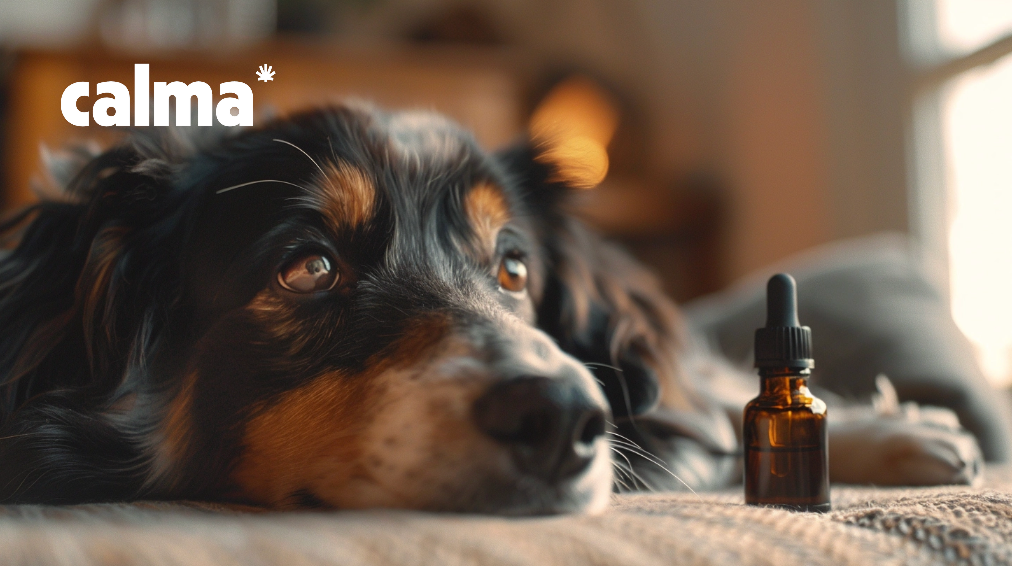
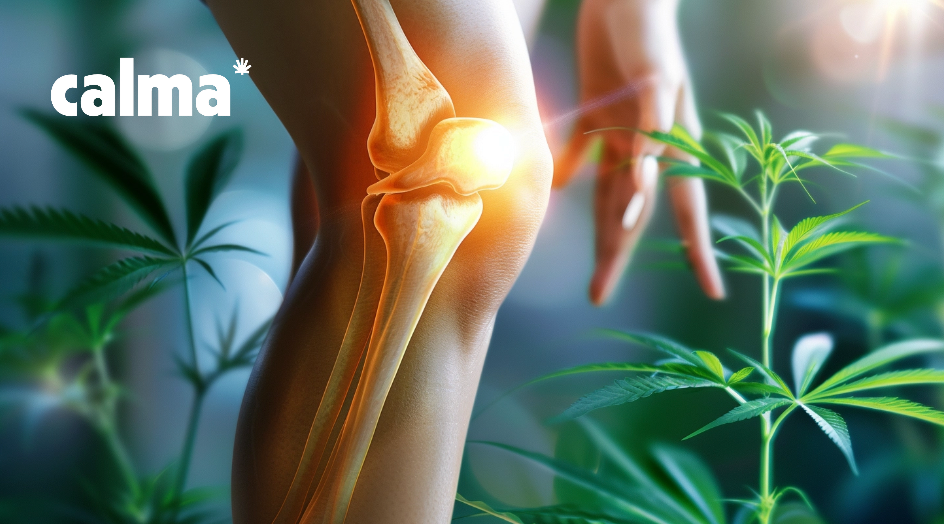


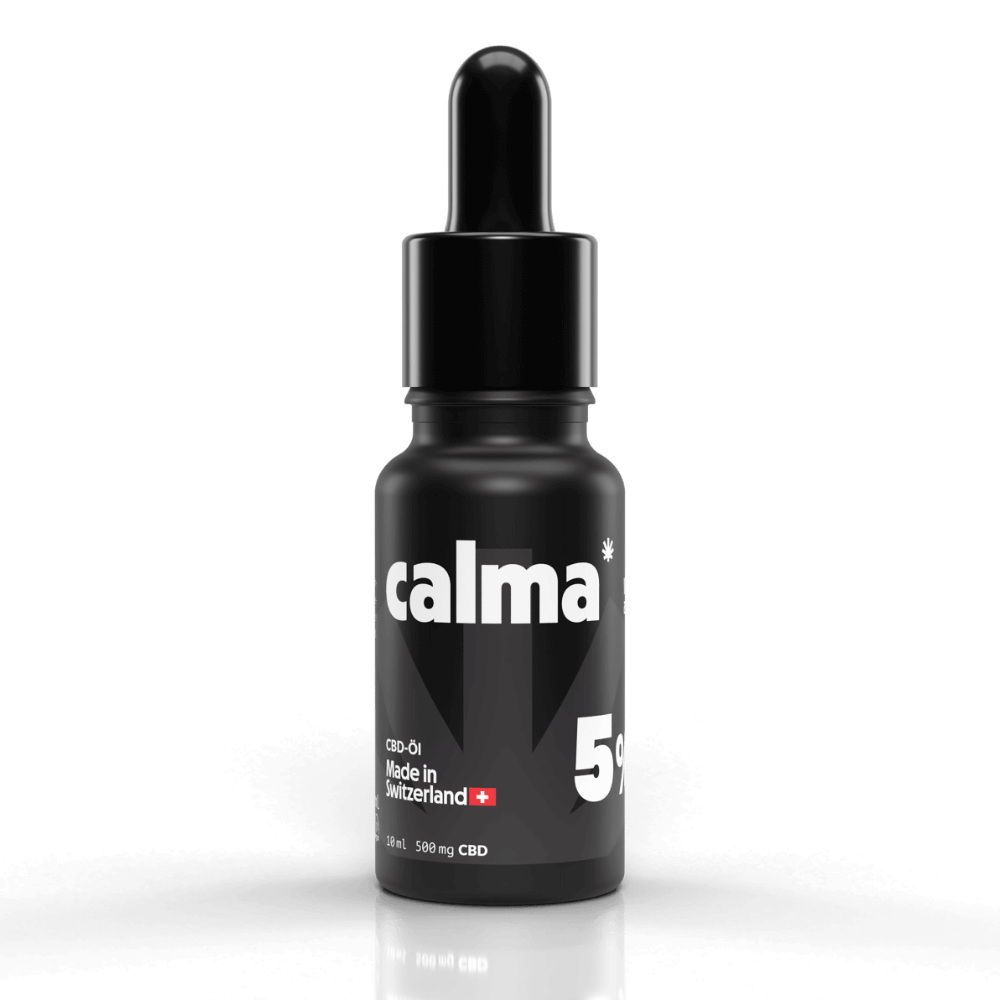
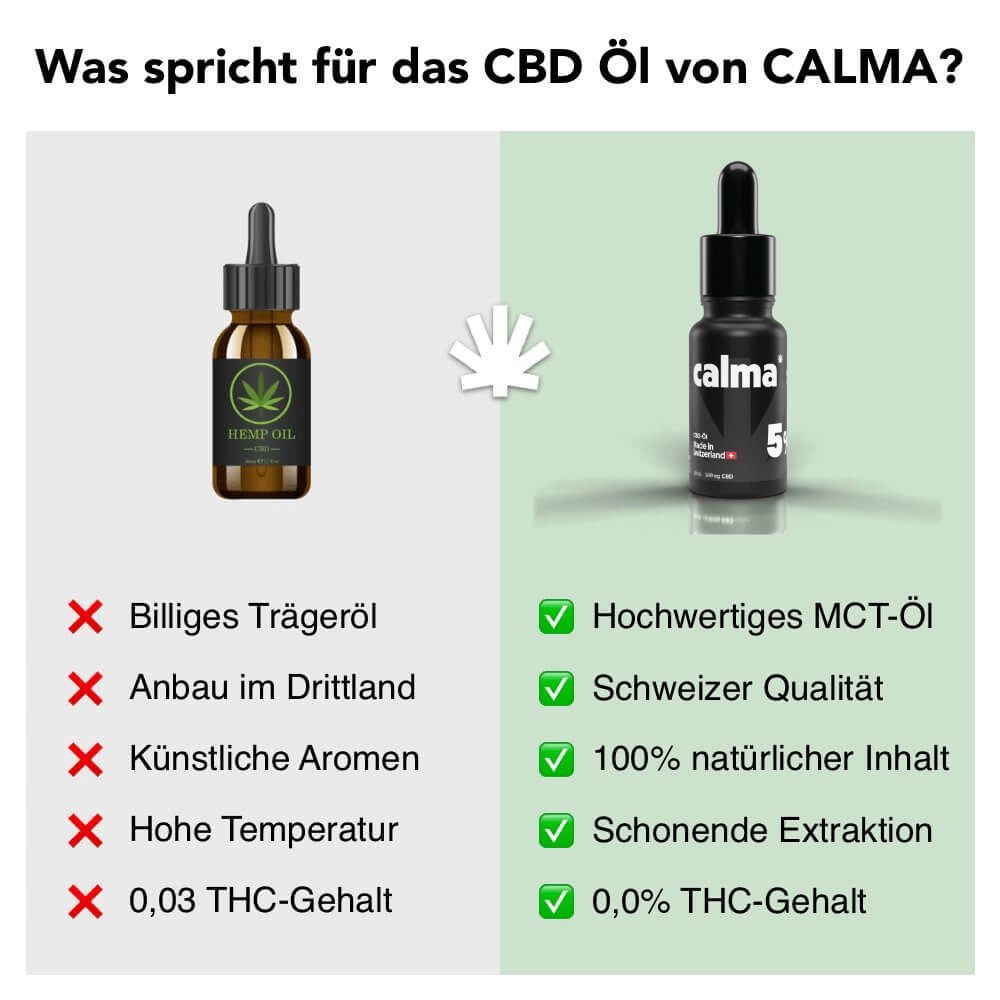
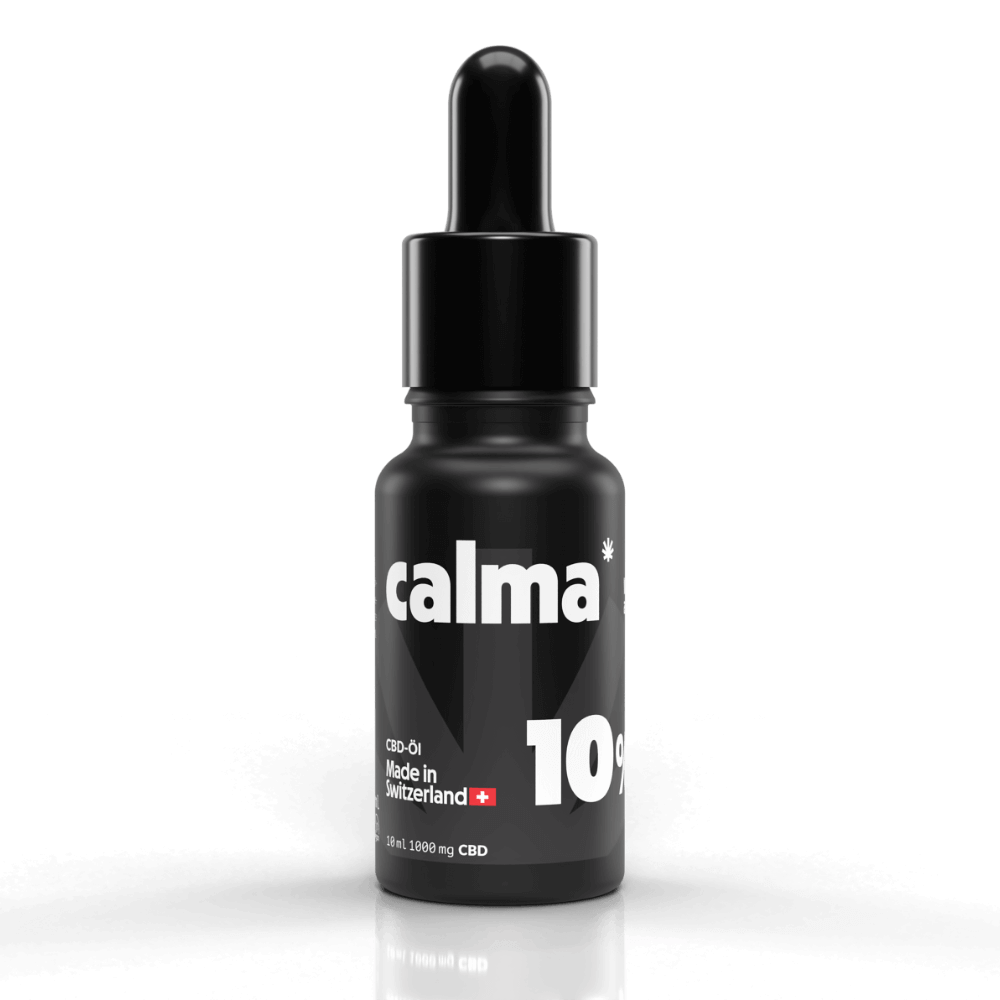
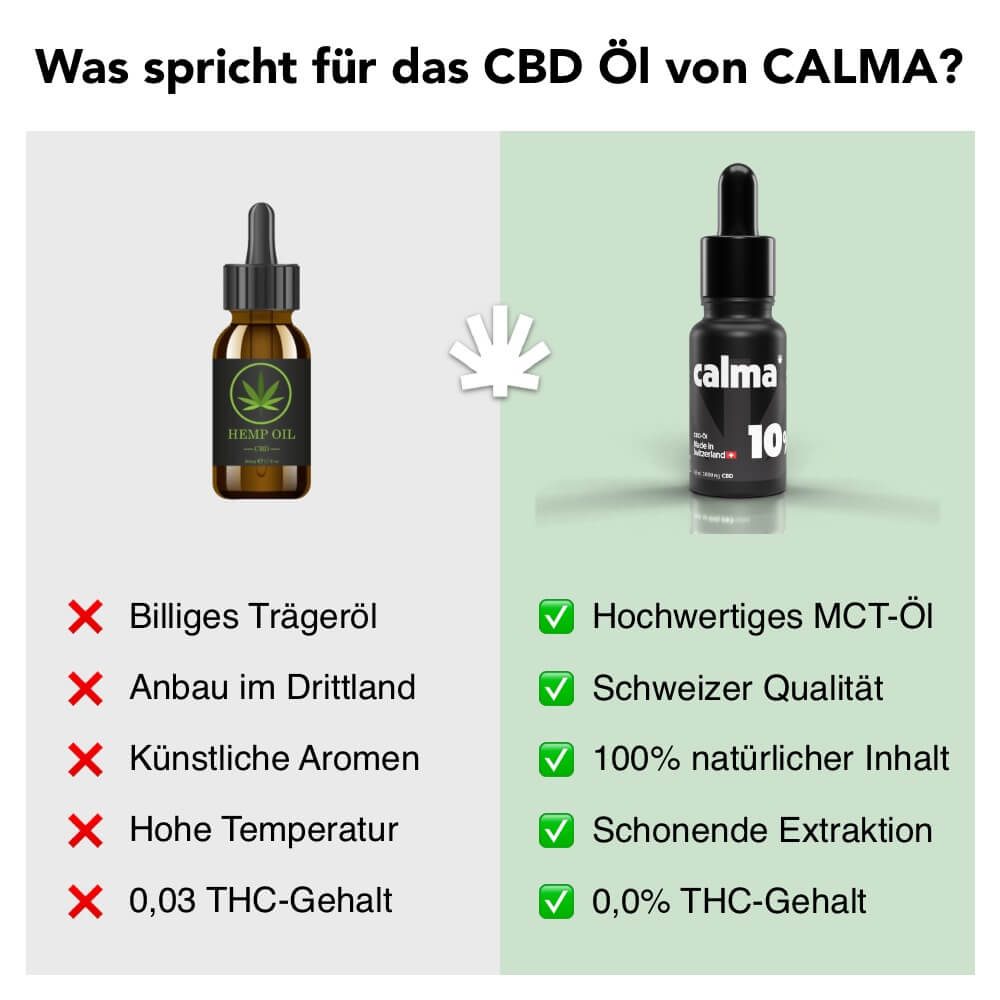
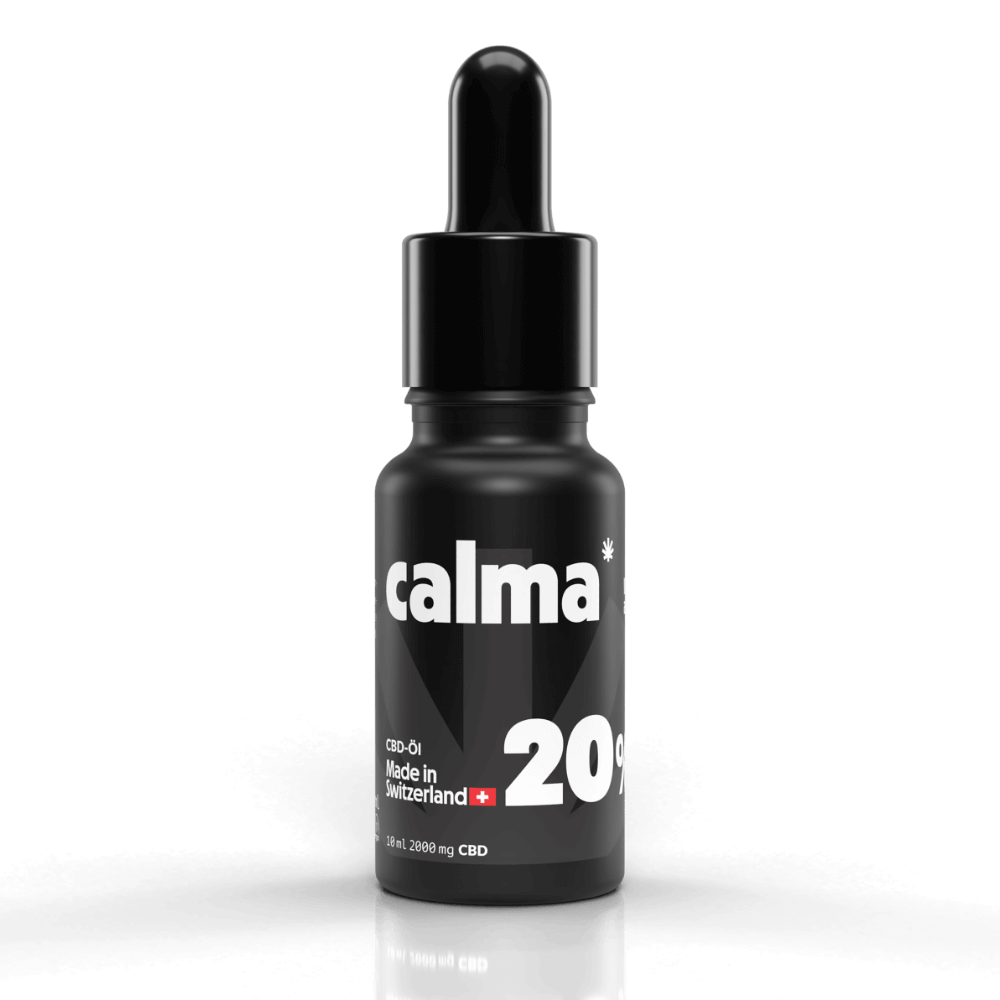
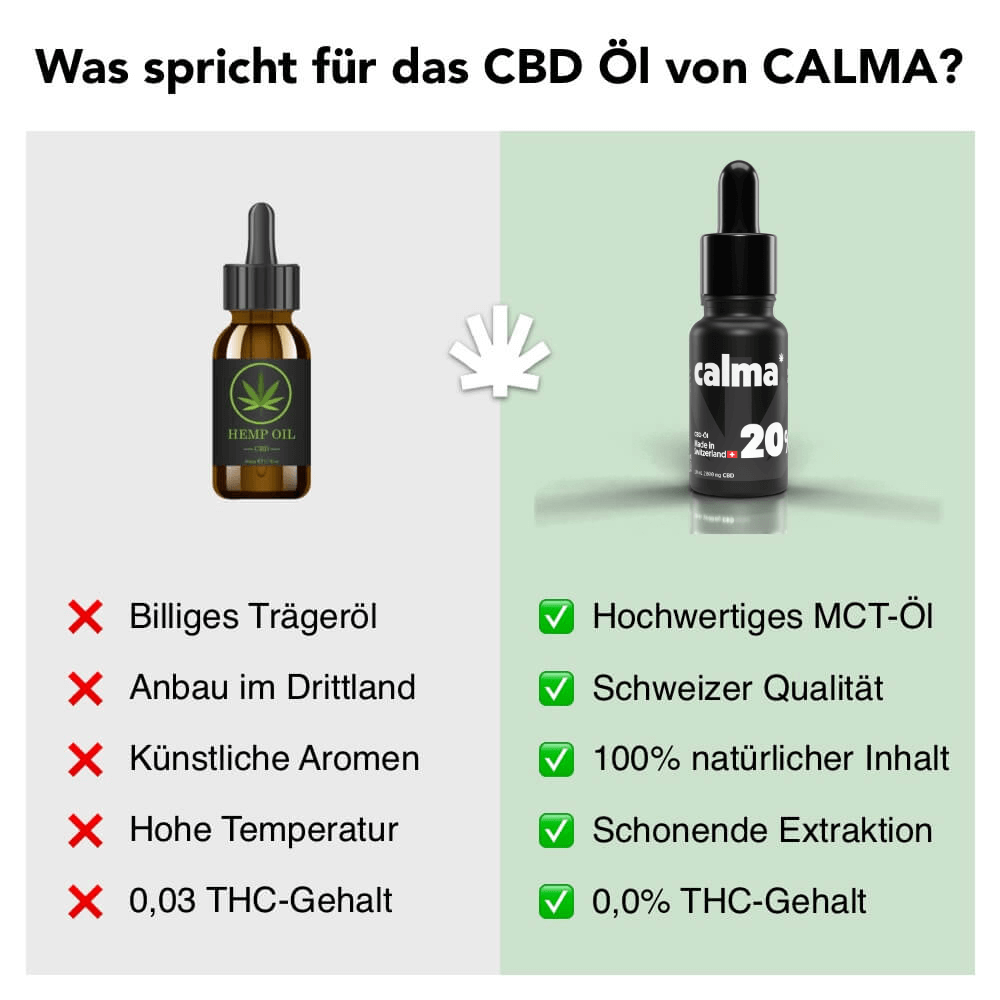
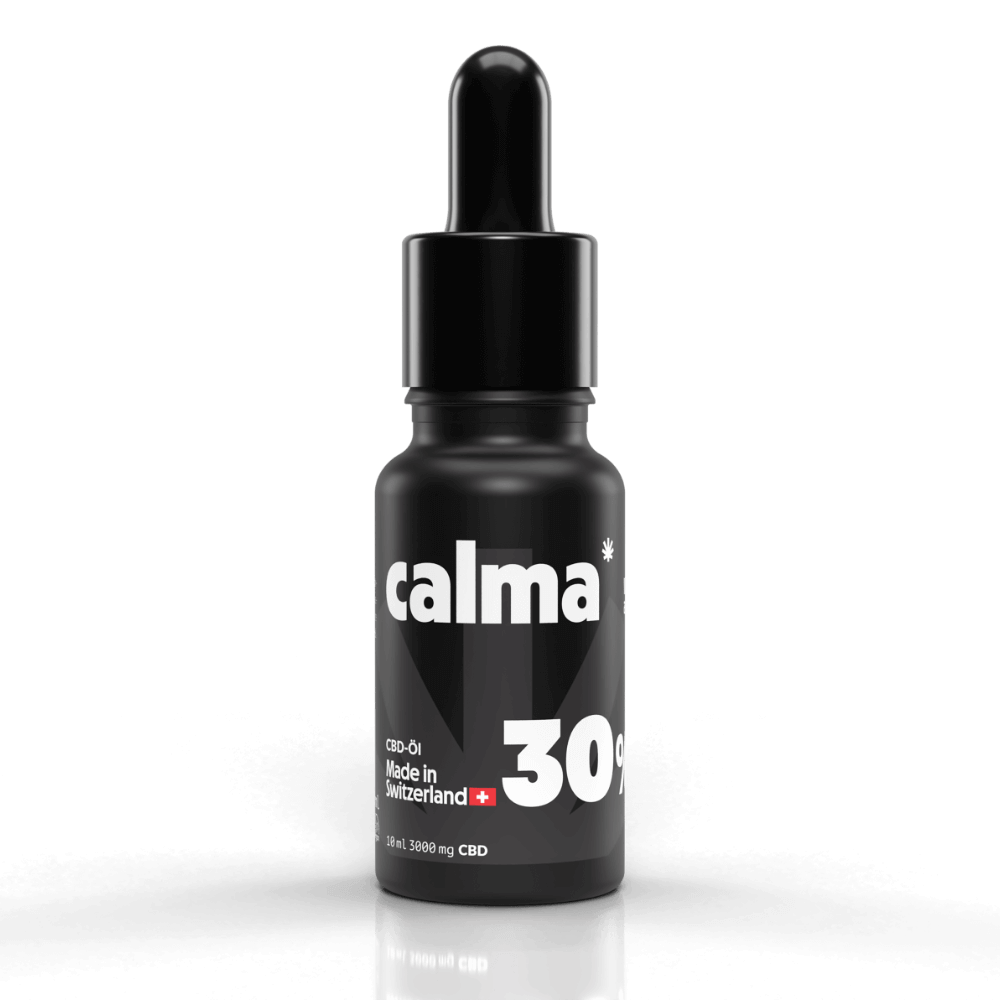
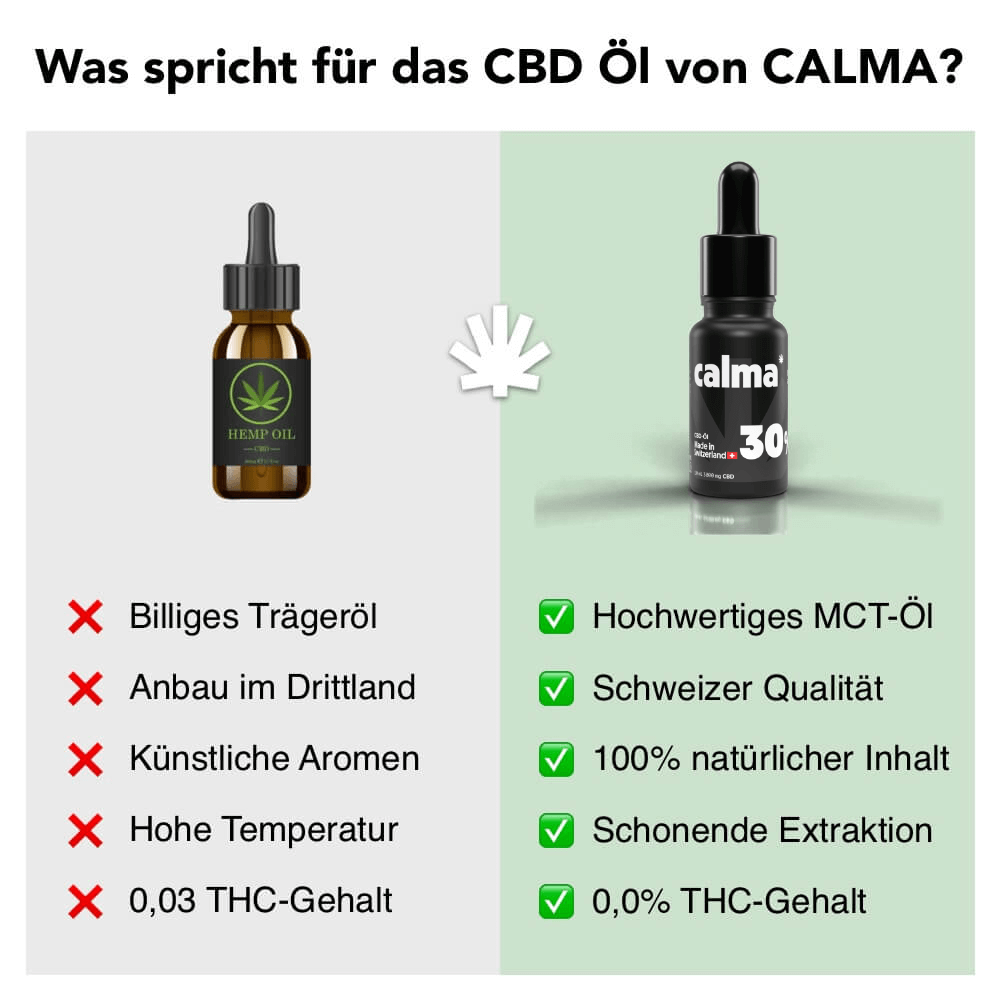
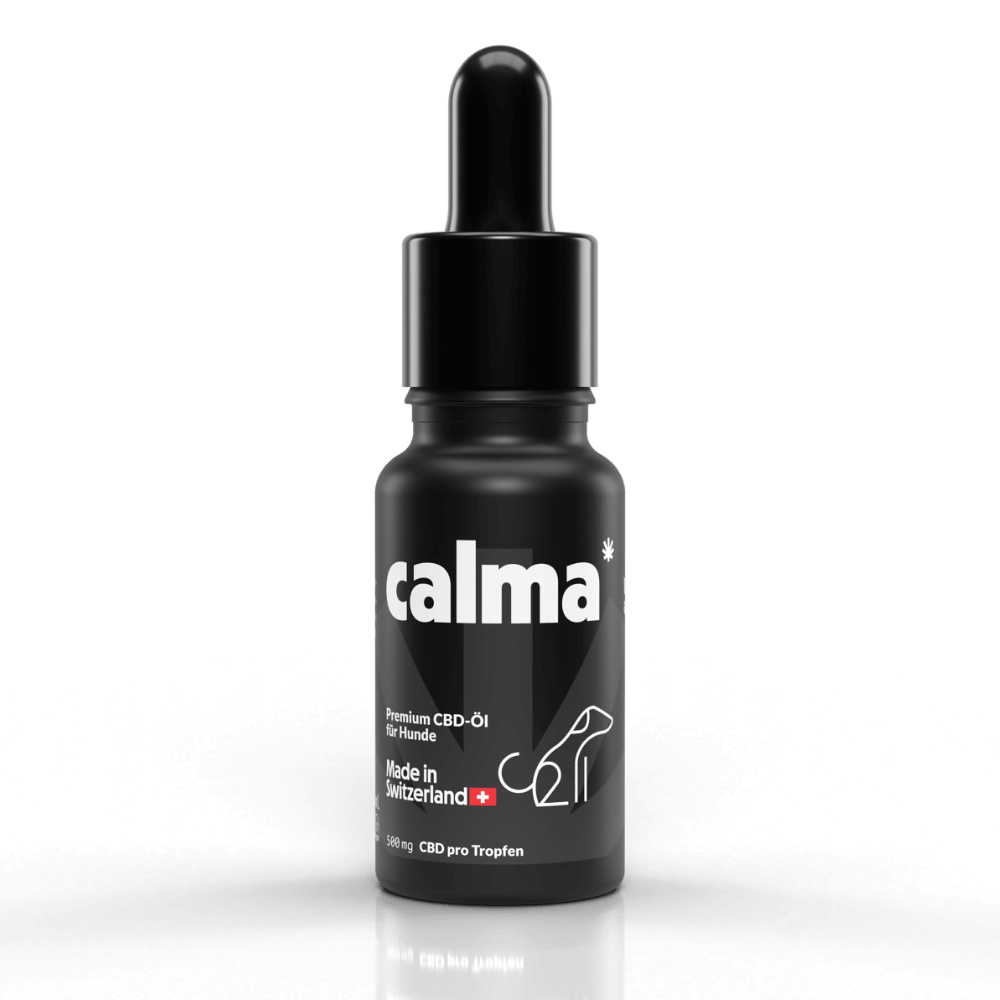
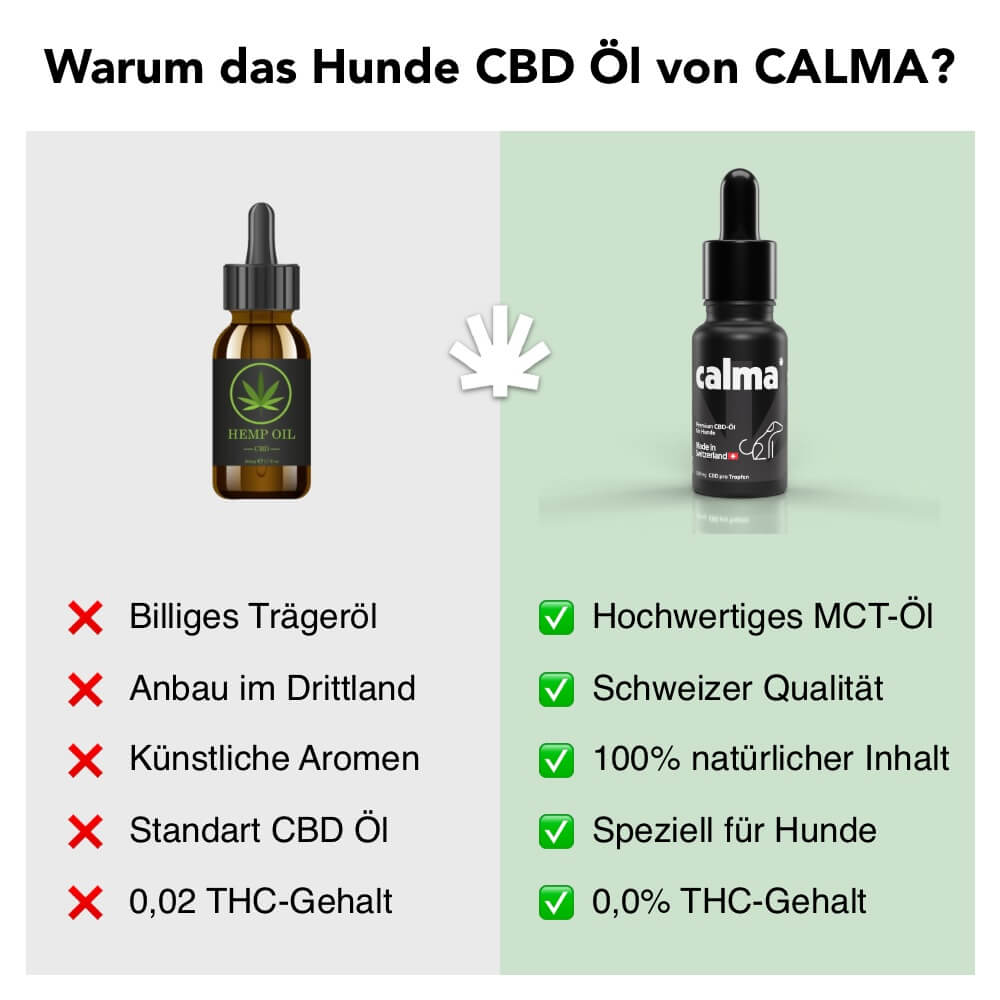
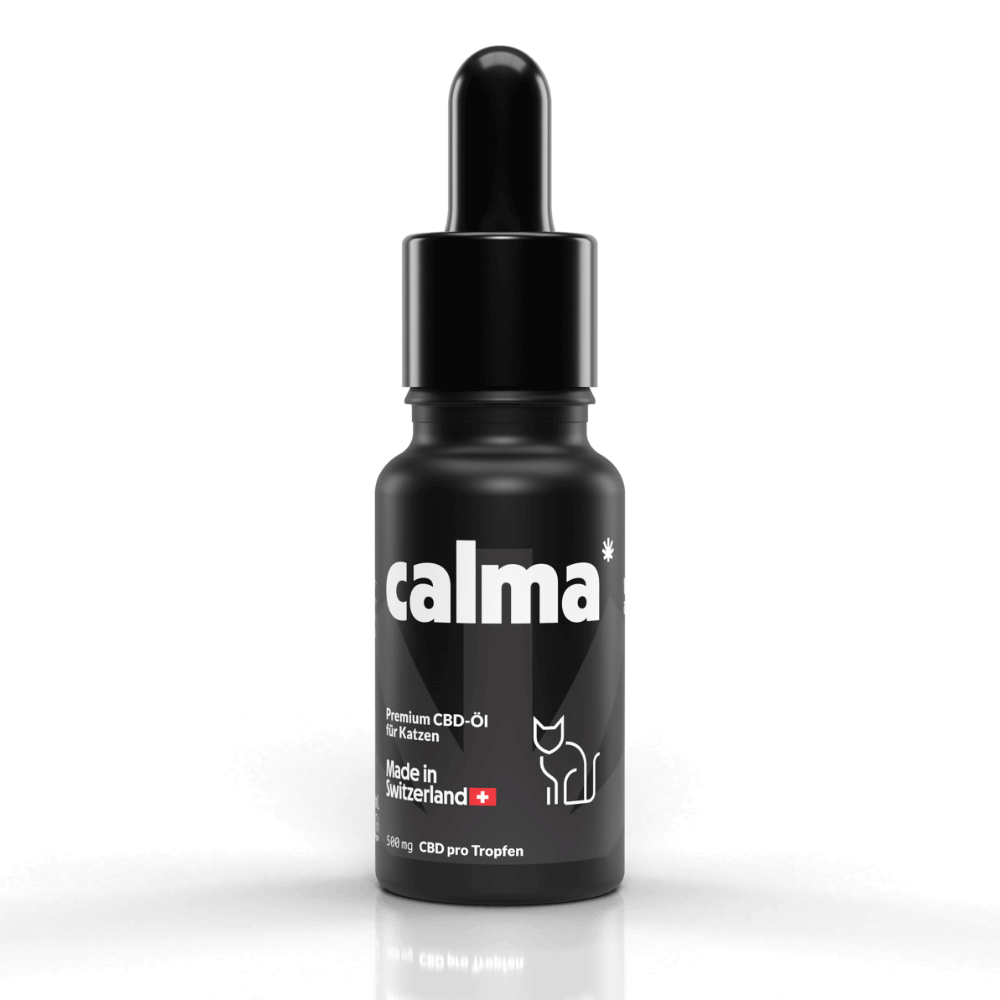
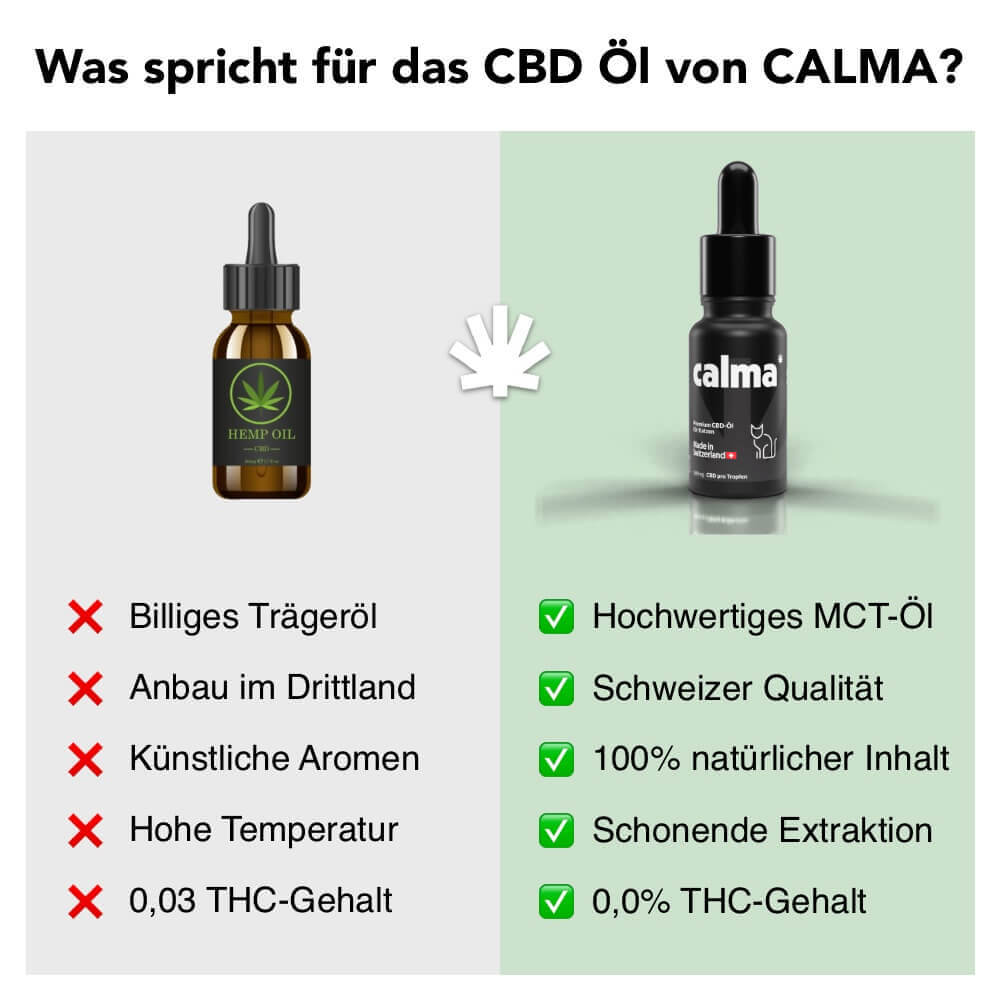
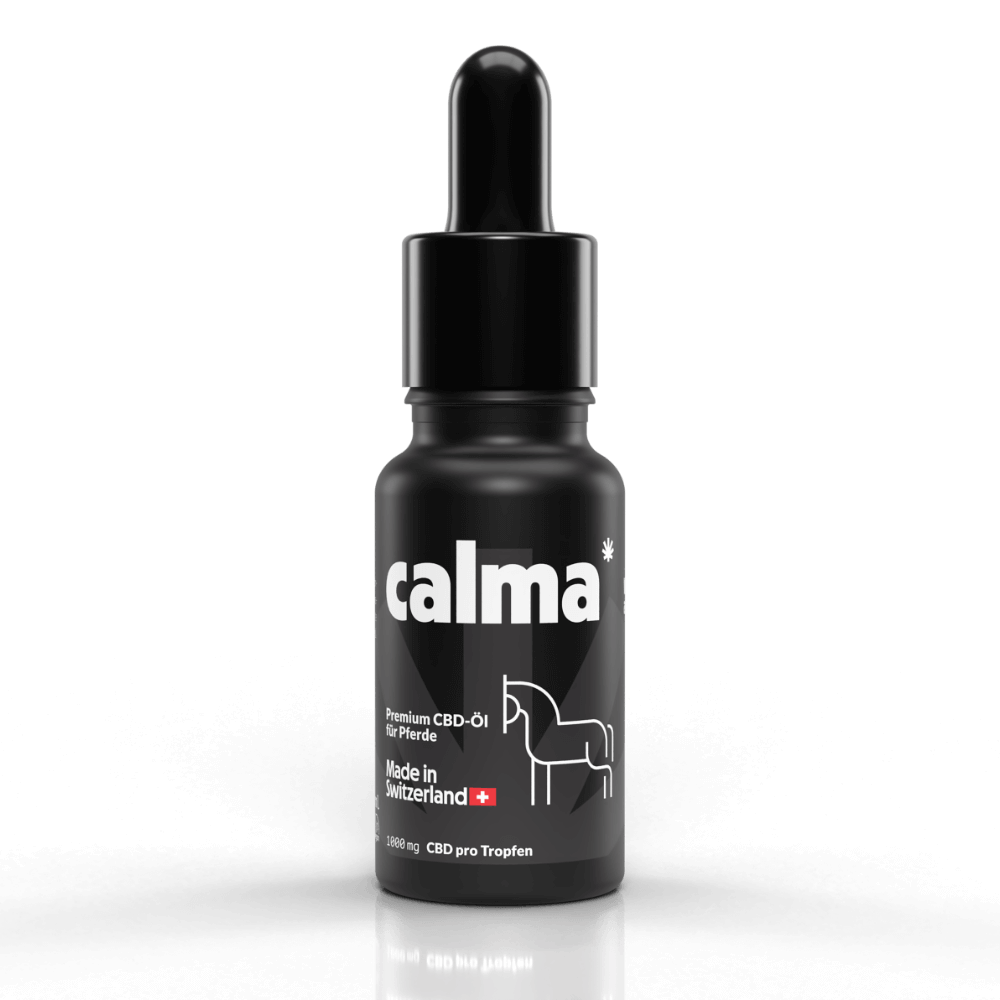
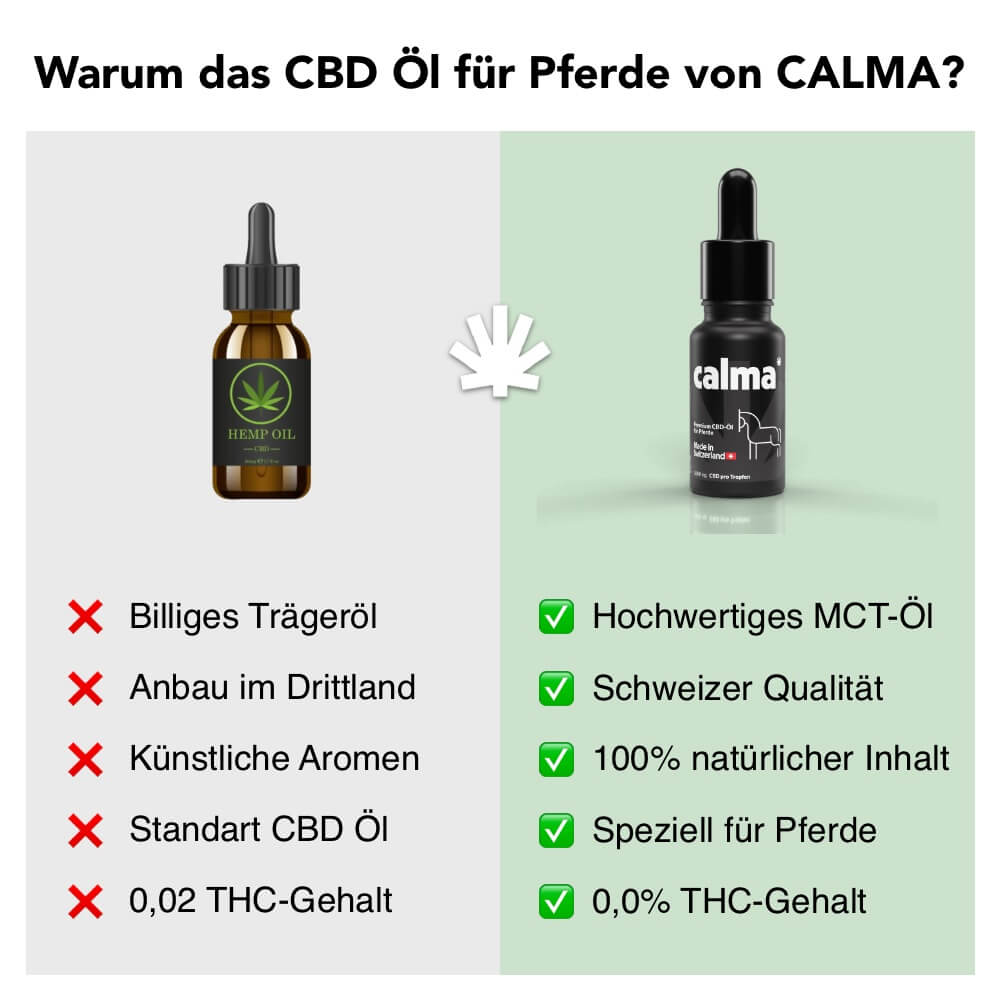
Leave a comment
All comments are moderated before being published.
This site is protected by hCaptcha and the hCaptcha Privacy Policy and Terms of Service apply.